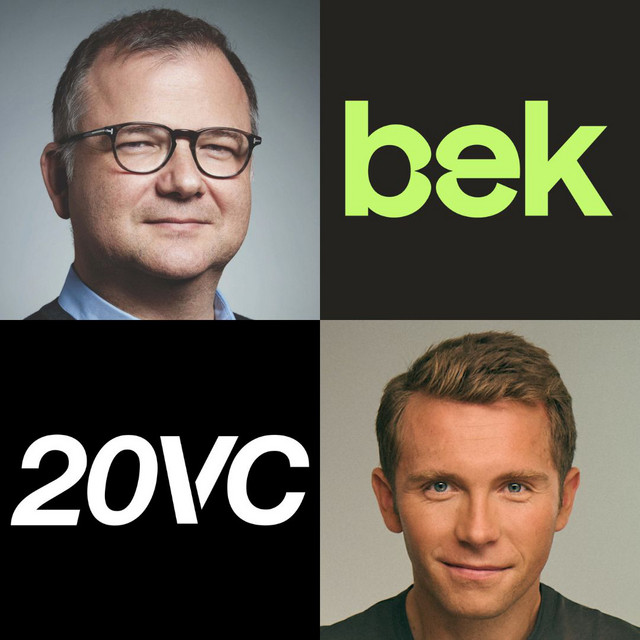Enjoyable listen this, as Harry Stebbings interviews Cem Sertoglu, an elite European seed investor, who led, very likely the single best seed deal on the continent, the UiPath investment, where he has turned $16.5m invested (the last $10m written as part of the Series B round “with our hands shaking at the time”) into $2.1b. Whoa! Cem (pronounced as Gem) shares a behind the scenes look at the UiPath investment (which he says almost every European VC has passed, at least once) and how it all came together. Such a fascinating story that.

Notes on what stood out for me:
- Play the game on the field. Says you have to invest even if the market is going crazy.
- Cem: “I think our job is to play the game. Our business structure is defined by timelines. We raise 10-year life funds, so our job is to expose our fund to the strongest opportunities in every vintage, not to try to time the market.”
- Cem: “the early rounds are not real rounds. They are contracts where you’re demonstrating alignment around a target that is very far out ahead. Every early stage check, you’re buying a very out of the money call option on these businesses.”
- Interesting point about how, unlike PE, Venture outcomes are correlated more to global outcomes than the local macro environment.
- Cem: “My outcomes are American outcomes, London Stock Exchange outcomes, acquisitions by global tech companies. They’re not outcomes that are subject to the turbulence of whatever country that founder team may be coming from.”
- Cem: “Our reserves are for those companies that will be misunderstood by the market or overlooked by the market because they don’t fit into the mold. And we were able to write that check with conviction.”
- They played a $2.5 bridge as a convert note following the seed round, when they saw that most of the Series A investors were not willing to step up
- Cem: “We ended up then showing the company to about 40 firms. Everybody passed. The feedback was OK, keep us posted. Not enough traction for us to care at the moment. And this is coming from a very large number of firms. We had to bridge the company. The numbers were not exceptional, but we could see how the clients were getting value out of the product. It was certainly headed in the right direction.”
- They played a $2.5 bridge as a convert note following the seed round, when they saw that most of the Series A investors were not willing to step up
- Cem: “Founders usually underestimate the leverage they have on their cap table. They negotiate things for very obscure situations, et cetera. Experienced founders know that it’s their company. They will have a lot of flexibility around managing things when it happens, when the opportunity comes down the road.”
- I kind of agree. The amount of time that gets wasted on termination for cause is not funny. It is clearly a red flag when founders negotiate too much on this clause, per me, and I have begun to share this specific clause earlier in the discussion now.
- Being quiet on the board. Cem: “We believe in being quiet on the board. It’s a skill that we have spent a lot of time thinking about and also through our kind of apprenticeship model internally, we try to distribute within the firm….there’s this enormous pressure to demonstrate value add. We think that you, of course, learn from your experiences in other journeys, but then synthesize that and distill that to very carefully chosen moments to provide input to the founder. I think your job as a board member is to understand the company, be very well prepared on any interaction, like the board meetings, etc. We’re obsessive about preparing for board meetings, but we are very careful in choosing when we share strong opinions.”
